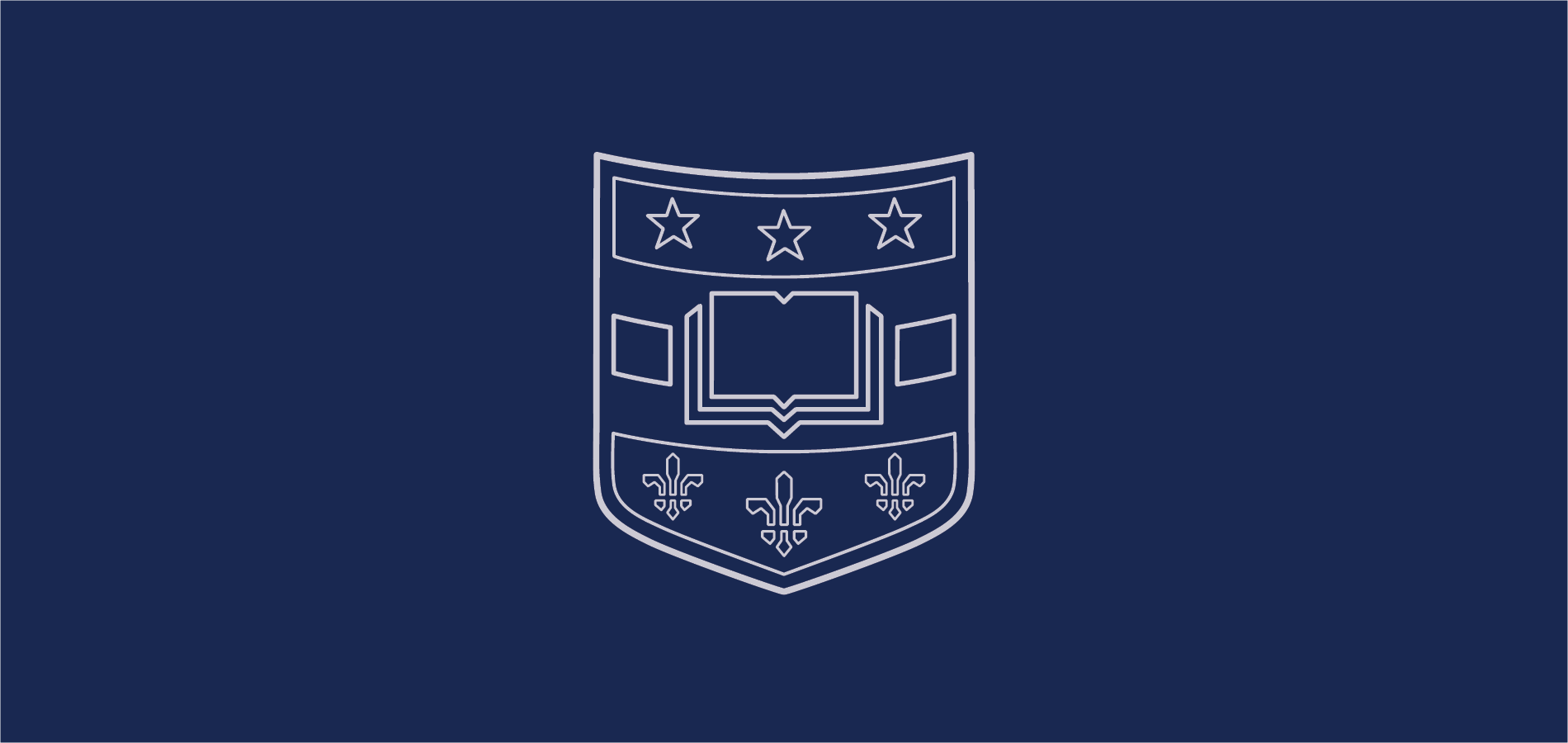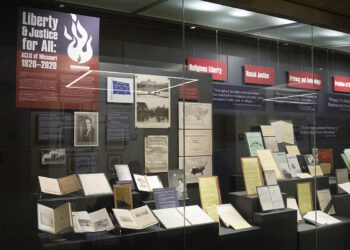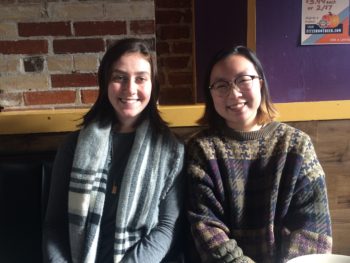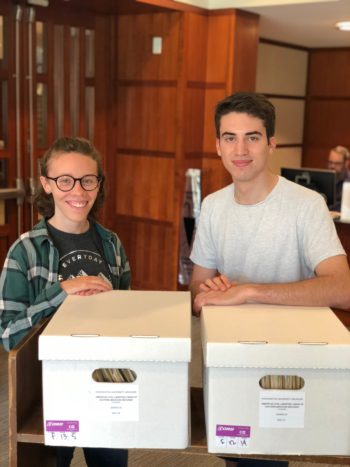
Reflections on a Centennial
ACLU of Missouri @100
In 2017, the Washington University Libraries’ Julian Edison Department of Special Collections and the ACLU of Missouri began preparation for the ACLU’s centennial in 2020. This work culminated in January 2020, with an event and exhibition at Olin Library. Over 200 people gathered to celebrate the vital work done by the ACLU of Missouri to defend the rights enshrined in our U.S. Constitution and Bill of Rights.
The exhibit offers a window into the vast work done by the ACLU of Missouri over the past 100 years, including fights to protect free speech, early efforts for LGBTQ+ rights, and more. The struggle to end police brutality and to close inhumane jails is a thread that runs throughout the exhibit, beginning with cases in the 1930s to the present day.

To continue the celebration online, this spring I will be sharing stories featured in the exhibition in a series of blog posts about ACLU-MO@100. Check back over the next few weeks for more online as we #ArchivesAtHome.
First, Some Background
In January 1920, Roger Baldwin gathered like-minded people together to start the American Civil Liberties Union in New York. Months later, he went to Boston and then St. Louis to create branch groups. Why these two cities? Boston, his family hometown, was a logical choice, and St. Louis was Baldwin’s adopted second home. In 1906, having just graduated from Harvard University, Baldwin joined the faculty of Washington University to teach sociology. He was enthusiastic and optimistic. He became involved in local progressive efforts and quickly fell in love with the growing river city. It was only his desire to oppose the military draft of World War I that moved Baldwin to New York in 1917.
And so, in May 1920, a group of reformers met Baldwin over lunch and started the St. Louis Civil Liberties Union. Today this organization is the American Civil Liberties Union of Missouri.
WashU Connections
The genesis for this collaboration really began in 1965, when a librarian at Washington University contacted the local ACLU about a permanent home for the affiliate’s historic records. Since then, the Department of Special Collections has partnered with the ACLU of Missouri to serve as the official repository of their historic files.
Work on the actual celebration did not begin until 2017, when Jeffrey Mittman (then executive director of the ACLU-MO) realized the centennial was fast approaching. He contacted Special Collections and asked how the ACLU’s amazing history could be shared with the larger community.
Together with Jeffrey, past board member Rob King, and ACLU communication director Daniela Velazquez, we reviewed the archived files. It was a good thing we started early, because this would be a complex project. Together, Daniela and I developed a plan for undergraduate students to work as academic interns, learning both archival skills and ACLU history.

Our first internship meeting was scheduled for September 15, 2017, the same day that mass protests began in response to Officer Jason Stockley’s acquittal for the death of Anthony Lamar Smith. The ACLU became very busy, and the next day filed suit against the city of St. Louis for its violent treatment of protesters. Looking back, it is a bittersweet coincidence, considering that the very earliest cases defended by the ACLU affiliate in St. Louis were protesters attacked by police in the 1920s and 30s. However, a few Skype calls and rescheduled meetings later, and we were back on track.
Pulling it All Together

Without the diligent work of our student interns, and the collaboration of many ACLU staff and volunteers, this centennial celebration would not have been possible. Between fall 2017 and spring 2020, seven Washington University undergraduates spent more than 580 hours compiling and summarizing key moments in ACLU history.
Wendy Lu, Saoirse Hahn, Lizzie Franclemont, Natalie Hilmer, Jordan Dublin, Andrew Celli, and Emily Gross paged through the archives in the reading room of Special Collections, taking notes and adding descriptions to the online finding aid.
Jordan also reviewed over 400 pages of digitized documents from the Roger Baldwin Personal Papers, provided by Princeton University Library. Both Andrew and Emily conducted oral histories with key people from the local ACLU organization.
You can read more about the project interns’ experiences here. Check back in the next few weeks for more stories from the ACLU-MO@100.
